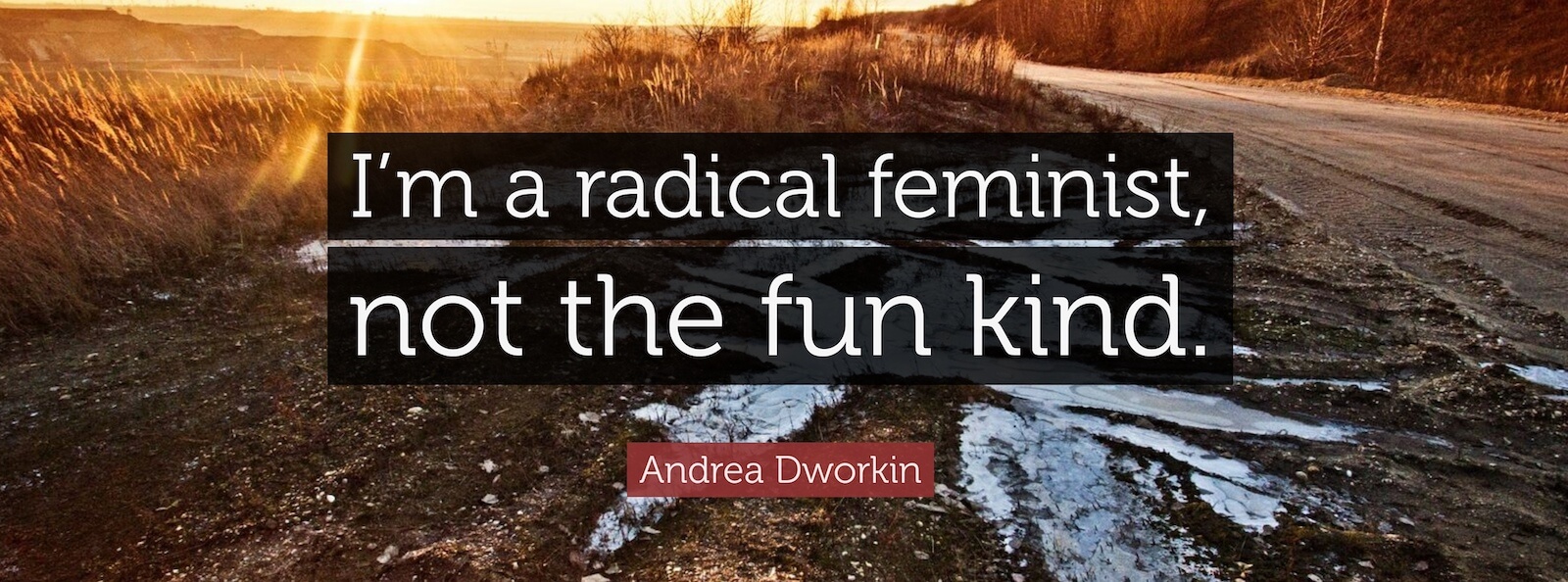This story first appeared in ScheerPost.
By Chris Hedges
The trial of Ghislaine Maxwell which began last week in Manhattan will not hold to account the powerful and wealthy men who are also complicit in the sexual assaults of girls as young as twelve Maxwell allegedly procured for billionaire Jeffrey Epstein.
Donald Trump, Bill Clinton, Bill Gates, hedge-fund billionaire Glenn Dubin, former New Mexico Gov. Bill Richardson, former Secretary of the Treasury and former president of Harvard Larry Summers, Stephen Pinker, Prince Andrew, Alan Dershowitz, billionaire Victoria’s Secret CEO Les Wexner, the, J.P Morgan banker Jes Staley, former Israeli prime minister Ehud Barack, real estate mogul Mort Zuckerman, former Maine senator George Mitchell, Harvey Weinstein and many others who were at least present and most likely participated in Epstein’s perpetual Bacchanalia, are not in court. The law firms and high-priced attorneys, federal and state prosecutors, private investigators, personal assistants, publicists, servants, drivers and numerous other procurers, sometimes women, who made Epstein’s crimes possible are not being investigated. Those in the media, the political arena and the entertainment industry who aggressively and often viciously shut down and discredited the few voices, including those of a handful of intrepid reporters, who sought to shine a light on the crimes committed by Epstein and his circle of accomplices are not on trial. The videos that Epstein apparently collected of his guests engaged in their sexual escapades with teenage and underage girls from the cameras he had installed in his opulent residences and on his private island have mysteriously disappeared, most probably into the black hole of the FBI, along with other crucial evidence. Epstein’s death in a New York jail cell, while officially ruled a suicide, is in the eyes of many credible investigators a murder. With Epstein dead, and Maxwell sacrificed, the ruling oligarchs will once again escape justice.
The Epstein case is important because, however much is being covered up, it is a window into the scourge of male violence that explodes in decayed cultures, fueled by widening income disparities, the collapse of the social contract and the grotesque entitlement that comes with celebrity, political power, and wealth. When a ruling elite perverts all institutions, including the courts, into instruments that serve the exclusive interests of the entitled, when it willfully neglects and abandons larger and larger segments of the population, girls and women always suffer disproportionally. The struggle for equal pay, equal distribution of wealth and resources, access to welfare, legal aid that offers adequate protection under the law, social services, job training, healthcare, and education services, have been so degraded they barely exist for the poor, especially poor girls and women.
Women, traditionally burdened with the care of children, the elderly and the sick, stripped of control over their own bodies in states that seek to deny reproductive rights, are cornered, unable to make a living and secure legal protection. This is always the goal of patriarchy. And in this degraded world girls and women are easy prey for pimps, pedophiles, and rapists such as Epstein and his accomplices. These men look at their victims not as children or young women in distress but as human trash, no more worthy of consideration than a slave, which in fact many of these girls and women become.
A licentious, money-drenched, morally bankrupt and intellectually vacuous ruling class, accountable to no one and free to plunder and prey on the weak like human vultures, rise to power in societies in terminal decline. This class of parasites was savagely parodied in the first-century satirical novel “Satyricon” by Gaius Petronius, written during the reign of Nero. Epstein and his cohorts for years engaged in sexual perversions of Petronian proportions, as Miami Herald investigative reporter Julie Brown, whose dogged reporting was largely responsible for reopening the federal investigation in Epstein and Maxwell, documents in her book “Perversion of Justice: The Jeffrey Epstein Story.”
As Brown writes, in 2016 an anonymous woman, using the pseudonym “Kate Johnson,” filed a civil complaint in federal court in California alleging she was raped by Trump and Epstein when she was thirteen over a four-month period from June to September 1994. “I loudly pleaded with Trump to stop,” she said in the lawsuit about being raped by Trump. “Trump responded to my pleas by violently striking me in the face with his open hand and screaming that he could do whatever he wanted.” Brown writes:
Johnson said that Epstein invited her to a series of “underage sex parties” at his New York mansion where she met Trump. Enticed by promises of money and modeling opportunities, Johnson said she was forced to have sex with Trump several times, including once with another girl, twelve years old, whom she labeled “Marie Doe.”
Trump demanded oral sex, the lawsuit said, and afterward he “pushed both minors away while angrily berating them for the ‘poor’ quality of the sexual performance,” according to the lawsuit, filed April 26 in U.S. District Court in Central California.
Afterward, when Epstein learned that Trump had taken Johnson’s virginity, Epstein allegedly “attempted to strike her about the head with his closed fists,” angry he had not been the one to take her virginity. Johnson claimed that both men threatened to harm her, and her family if she ever revealed what had happened.
The lawsuit states that Trump did not take part in Epstein’s orgies but liked to watch, often while the thirteen-year-old “Kate Johnson” gave him a hand job. It appears Trump was able to quash the lawsuit by buying her silence. She has since disappeared.
These mediocrities, drunk with their own self-importance, equate celebrity, power and wealth with wisdom. Petronius’ Trimalchio, the archetypal self-made millionaire whose vulgarity and stupidity make him one of great comic buffoons of literature, was more than matched by Epstein who organized pretentious dinners for those in his secret billionaires club, which included Elon Musk, Bill Gates, Salar Kamangar and Jeff Bezos. Epstein and his guests, as in Petronius’s chapter “Dinner with Trimalchio,” dreamed up bizarre schemes of social engineering, including Epstein’s plan to seed the human species with his own DNA by creating a baby compound at his sprawling estate in New Mexico. “Epstein was also obsessed with cryonics, the transhumanist philosophy whose followers believe that people can be replicated or brought back to life after they are frozen,” Brown writes. “Epstein apparently told some of the members of his scientific circle that he wanted to inseminate women with his sperm for them to give birth to his babies, and that he wanted his head and his penis frozen.”
Epstein, who regularly entertained and funded the work of Harvard faculty, was made a visiting fellow in Harvard’s Department of Psychology, although he had no academic qualifications that made him eligible for the position. He was given a key card and pass code, as well as an office, in the building that housed Harvard’s Program for Evolutionary Dynamics. He referred to himself in his press releases as “Science Philanthropist Jeffrey Epstein,” “Education activist Jeffrey Epstein,” “Evolutionary Jeffrey Epstein,” “Science patron Jeffrey Epstein” and “Maverick hedge funder Jeffrey Epstein.”
The judicial system, for years, worked to protect Epstein. The legal anomalies, including the disappearance of massive amounts of evidence incriminating Epstein, saw Epstein avoid federal sex-trafficking charges in 2007 when his attorneys negotiated a secret deal with Alex Acosta in the U.S. attorney’s office in Miami to plead guilty to lesser state charges of soliciting a minor for prostitution.
The prominent men accused of also engaging in Epstein’s carnival of pedophilia, including the attorney and former Harvard law professor Alan Dershowitz, brazenly lie and threaten anyone daring to call them out. Dershowitz, for example, claims that an investigation, which he has refused to make public, by the former FBI director Louis Freeh proves he had never had sex with one of Epstein’s victims, Virginia Giuffre. He has sent repeated threats to Brown and her editors at the Miami Herald. Brown continues:
[Dershowitz] kept referring to information that was contained in sealed documents. He accused the newspaper of not reporting “facts” that he said were in those sealed documents. The truth is, I tried to explain, newspapers just can’t write about things because Alan Dershowitz says they exist. We need to see them. We need to verify them. Then, because I said “show me the material,” he publicly accused me of committing a criminal act by asking him to produce documents that were under court seal.
This is the way Dershowitz operates.
What disturbs me the most about Dershowitz is the way that the media, with few exceptions, fails to critically challenge him. Journalists fact-checked Donald Trump and others in his administration almost every day, yet, for the most part, the media seems to give Dershowitz a pass on the Epstein story.
In 2015, when Giuffre’s allegations first became public, Dershowitz went on every television program imaginable swearing, among other things, that Epstein’s plane logs would exonerate him. “How do you know that?” he was asked.
He replied that he was never on Epstein’s plane during the time that Virginia was involved with Epstein.
But if the media had checked, they could have learned that he was indeed a passenger on the plane during that time period, according to the logs.
Then he testified, in a sworn deposition, that he never went on any plane trips without his wife. But he was listed on those passage manifests as traveling multiple times without his wife. During at least one trip, he was on the plane with a model named Tatiana.
The ability of the powerful to ignore the law raises important and different questions for girls and women about the role of government, police and the law. Defunding the police is not a solution. Demilitarizing the police is. Women need legal protection and need police that function as police, as a sanction with severe consequences against male violence. They need social support. They need robust institutions, including the courts, which prevent them from being blackmailed, bullied, and abused. To challenge sexual violence, to challenge objectification, to challenge the cultural hypersexualization of women, is to be subject to vicious character assassination, threatened, including the threat of rape, and at times killed. To stand up to protect water, to assist a truth-teller, if you are a woman, is to face potential economic destitution. To stand up and name your abuser, as many of the courageous women who have come forward in the Epstein case have done, is to have high-priced teams of attorneys and private investigators pursue every avenue to demonize, discredit and destroy you financially and psychologically. The resources available to the powerful, and the dearth of resources available to the powerless, skews this fight in favor of the predators. This is by design.
The struggle for liberation and justice by women is central to the struggle for liberation and justice for everyone. We will not resist the radical evil before us without women, if we are denied access to the ideas and leadership of women, and in particular women of color. So, while we must decry violence and exploitation against all of the oppressed, we must also recognize that male violence against women – including prostitution and its promoter, pornography – is an especially insidious form of violence. It is a tool of corporate domination and capitalism. It is engrained in the racism and exploitation of imperialism and colonialism. But it also exists outside the structures of capitalism, imperialism, and colonialism. More women have been killed by their domestic partners since 2001 than all the Americans killed on September 11, and in the wars in Iraq and Afghanistan. Predatory male power infects the left as well as the right, the anti-capitalists as well as the capitalists, the anti-imperialists as well as the imperialists and the anti-racists as well as the racists. It is its own evil. And if it is not defeated there will be no justice for women or for anyone else.
The predators know that desperation forces girls and women, with no alternatives left, to trade sex for the most basic staples of life, including food and shelter. In every conflict I covered as a war correspondent there was an explosion of prostituted girls and women. And as we are burdened with greater and greater numbers of environmental migrants — over a billion by 2050, by one prediction — fleeing droughts, rising sea levels, flooding, wildfires and declining crop yields these exchanges of sex for the most basic elements need to survive will become more common. The scourge of male violence is growing, not decreasing.
George Bernard Shaw got it right. Poverty is:
“[T]he worst of crimes. All the other crimes are virtues beside it; all the other dishonors are chivalry itself by comparison. Poverty blights whole cities, spreads horrible pestilences, strikes dead the very souls of all who come within sight, sound, or smell of it. What you call crime is nothing: a murder here and a theft there, a blow now and a curse then. What do they matter? They are only the accidents and illnesses of life; there are not fifty genuine professional criminals in London. But there are millions of poor people, abject people, dirty people, ill-fed, ill-clothed people. They poison us morally and physically; they kill the happiness of society; they force us to do away with our own liberties and to organize unnatural cruelties for fear they should rise against us and drag us down into their abyss. Only fools fear crime; we all fear poverty.”
Rabbi Abraham Joshua Heschel said of society that “some are guilty, but all are responsible.” The crime of poverty is a communal crime. Our failure, as the richest nation on earth, to provide safe and healthy communities, ones where all children have enough to eat and a future, is a communal crime. Our failure to provide everyone, and especially the poor, with a good education and housing is a communal crime. Our failure to make health care a human right, forcing parents, burdened with astronomical medical bills, to bankrupt themselves to save their sick sons or daughters, is a communal crime. Our failure to provide meaningful work — in short, the possibility of hope — is a communal crime. Our decision to militarize police forces and build prisons, rather than invest in people, is a communal crime. Our failure to protect girls and women is a communal crime. The misguided belief in charity and philanthropy rather than justice is a communal crime. “You Christians have a vested interest in unjust structures which produce victims to whom you then can pour out your hearts in charity,” Karl Marx said, chastising a group of church leaders.
If we do not work to eliminate the causes of poverty, the greatest of all crimes, the institutional structures that keep the poor poor, then we are responsible. There are issues of personal morality, and they are important, but they mean nothing without a commitment to social morality. Only those who have been there truly understand. Only those with integrity and courage speak the truth. And at the forefront of this fight are women.
Sexual sadism is fed by the entitlement of the powerful and a pornography industry that eroticizes images of girls and women being physically abused. It is not accidental that many of the Abu Ghraib images resemble stills from porn films. There is a shot of a naked man kneeling in front of another man as if performing oral sex. There is a photo of a naked man on a leash held by a female American soldier. There are photos of naked men in chains. There are photos of naked men stacked one on top of the other in a pile on the floor. And there are hundreds more classified photos that purportedly show forced masturbation by Iraqi prisoners and the rape of prisoners, including young boys, by U.S. soldiers, many of whom were schooled in these torture techniques in our vast system of mass incarceration.
The list of suspected abusers around Epstein was not segregated by the left or the right. It included Republicans, like Trump, and Democrats such as Clinton. It included philanthropists such as Gates, the former prime minister of Israel, and Harvard academics. It included celebrities, such as David Copperfield, and the titans of finance and business. The common denominator was not politics or ideology, but that they were powerful and wealthy men.
The feminist Andrea Dworkin understood. She excoriated the left, who railed against the excesses of capitalism, while ignoring the capitalist exploitation of girls and women. She wrote:
Capitalism is not wicked or cruel when the commodity is the whore; profit is not wicked or cruel when the alienated worker is a female piece of meat; corporate bloodsucking is not wicked or cruel when the corporations in question, organized crime syndicates, sell cunt; racism is not wicked or cruel when the black cunt or yellow cunt or red cunt or Hispanic cunt or Jewish cunt has her legs splayed for any man’s pleasure; poverty is not wicked or cruel when it is the poverty of dispossessed women who have only themselves to sell; violence by the powerful against the powerless is not wicked or cruel when it is called sex; slavery is not wicked or cruel when it is sexual slavery; torture is not wicked or cruel when the tormented are women, whores, cunts. The new pornography is left-wing; and the new pornography is a vast graveyard where the Left has gone to die. The Left cannot have its whores and its politics too.
The Earth, and all forms of life on this planet, must be revered, and protected if we are to endure as a species. This means inculcating a different vision of human society. It means building a world where domination and ceaseless exploitation, in all its forms, are condemned, where empathy, especially for the weak and for the vulnerable is held up as the highest virtue. It means recovering the capacity for awe and reverence for the sacred sources that sustain life. It means that girls and women must be empowered to control their own fates. Once we stand up for this ethic of life, once we include all people, including girls and women, as an integral part of this ethic, we can build a successful resistance movement that can challenge the radical evil before us. But we can’t do it unless half of the human population, girls and women, are at our side. Their fight is our fight. Their justice is our justice. Once they are free, we can all be free.





